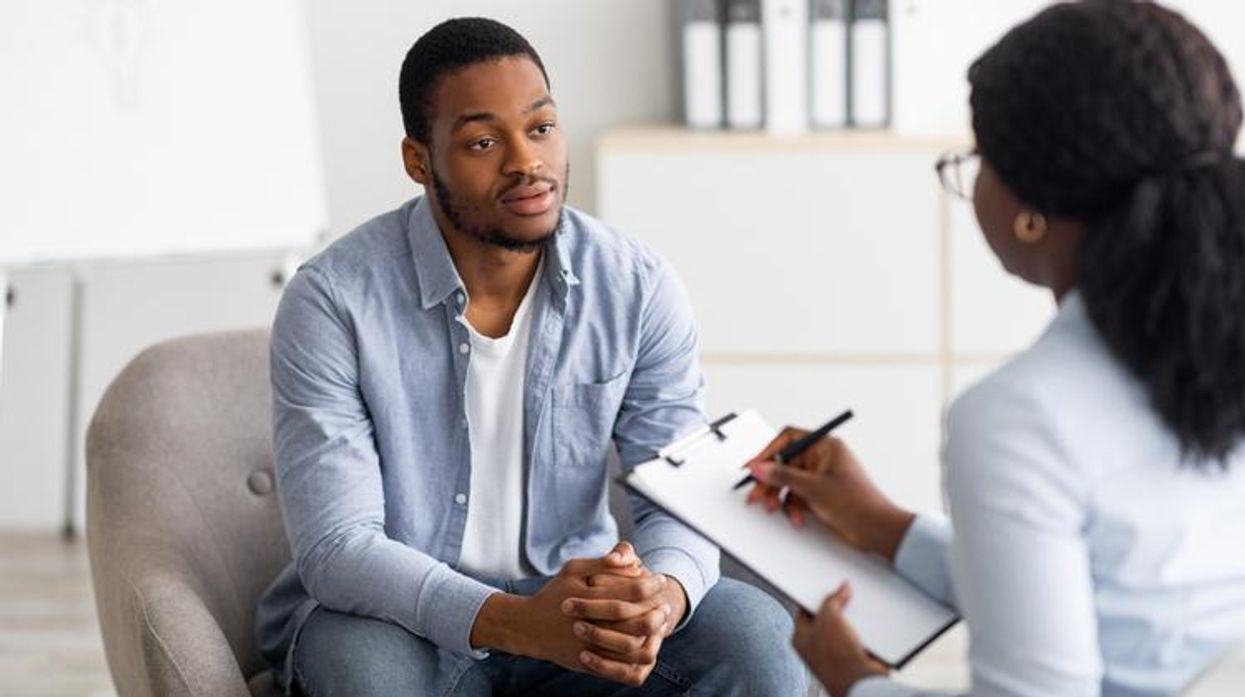Voices
A Fairer Health System Must Include a Plan to End HIV

Via Shutterstock
As we mark National Black HIV/AIDS Awareness Day, we must continue the push for a cure.
February 07 2022 8:19 AM EST
By continuing to use our site, you agree to our Privacy Policy and Terms of Use.

As we mark National Black HIV/AIDS Awareness Day, we must continue the push for a cure.
America's long-overdue reckoning with racial disparities in our public health system is a conversation that we're finally ready to have. The devastation of the COVID-19 pandemic over the past two years is fueling a generational conversation on how we build a fairer system -- something those of us in the HIV and AIDS sector have been advocating for decades.
We are all now well aware of how the COVID-19 (SARS-CoV-2) pandemic ravaged Black communities when people died at a rate twice as high as whites. Elected officials have promised to do something about the well-documented but often-forgotten epidemics of asthma, obesity, diabetes, heart disease, and other preexisting conditions that allowed the novel coronavirus to disproportionately impact communities of color.
The national conversation on comorbidities that leave communities vulnerable to pandemics like COVID-19 all too often leaves out people who are living with HIV and are immunocompromised. HIV is a crisis that continues to carry the burden of stigma, tear apart families, create fear and confusion, claim too many lives, and present constant barriers to care for people living with HIV and those seeking prevention services. Any national mobilization to improve public health for Black Americans is doomed unless it puts this virus alongside underlying health conditions that leave whole communities particularly vulnerable.
As we observe National Black HIV/AIDS Awareness Day in this month dedicated to Black history, we are reminded of how much work still there is to do to combat the devastation that HIV continues to have on Black people across the globe. Many hear "HIV" or "AIDS" and treat it like polio or some other bygone, eradicated disease. But in 2019, over 36,000 joined the more than 1 million people in the U.S. living with HIV orvAIDS. Of those living with the virus, an estimated 40 percent are Black -- despite Blacks making up just 13 percent of the U.S. population.
Sadly, this trend shows no sign of slowing down. Although biomedical advances and therapeutic medicine exist today to radically change the trajectory of the virus and improve the lives of persons living with HIV, Black people still account for approximately 42 percent of all new cases. Perhaps most alarming is that the Centers for Disease Control and Prevention reported a 7 percent increase among Black people in the 25-34 age group between 2014 and 2018.
While we don't have a complete picture of the impact of COVID-19 and the Omicron variant on those living with HIV, it is already certain that this virus disproportionately ravished the Black community, with aggression. As early as April 2020, barely a month into the pandemic, Black Louisiana residents alone made up 70 percent of the state's deaths despite making up 32 percent of its population. There are many reasons why people of color were devastated: Many are frontline workers, experience poverty, live in substandard housing, or have an understandable mistrust of the medical community.
But the most important common denominator is that many in these communities lack adequate access to health care. That in turn leads to a great disconnect between people acquiring HIV but never being tested for it. An estimated 13 percent of all people with HIV in the U.S. don't know they have the virus. The longer they go without treatment or knowing their status, the less likely they are to become virally suppressed and protect themselves and their partners.
We are calling upon the entire Black community to get tested for HIV and tested for COVID-19 -- often and unwaveringly. This is an intergenerational cry for us to commit to being informed. Knowing your status will help you take better care of your health and your loved ones.
And we are calling upon the Biden administration to build upon the CDC's historic $216 million in support over the last five years to community-based organizations that focus HIV prevention. These critically needed dollars must go to grassroots organizations in high-risk areas, whose staff often come from these communities and know best how to deploy the tools that can stop the spread of HIV.
This in turn will also help more HIV-positive Black people get the care they need. We have seen many people test positive only to never come back or follow up with a medical professional. Only 63 in every 100 Black people living with HIV received some treatment in 2018, according to the CDC. This tracked lower than for the general HIV-positive population. The numbers for those retained in care and the virally suppressed are also lower among Black people with the virus.
The bottom line is the Black community represents the largest share of people living with HIV yet gets less care to stop it. That's no way to defeat an epidemic.
We can create a community safe space to end this virus with the same conviction and sustained effort we have shown toward COVID-19, asthma, heart disease, and other illnesses. That must start at the grassroots level, with organizations such as ours continuing and expanding upon our lifesaving work. We can be the bridge of trust between the frightened person who thinks they might be living with HIV and the federal resource that could save their lives.
It's time for our nation to overcome the pandemic before us alongside the one that has harmed us for decades.
Grazell Howard is the chair of the board for the Black AIDS Institute.
Charlie Kirk DID say stoning gay people was the 'perfect law' — and these other heinous quotes